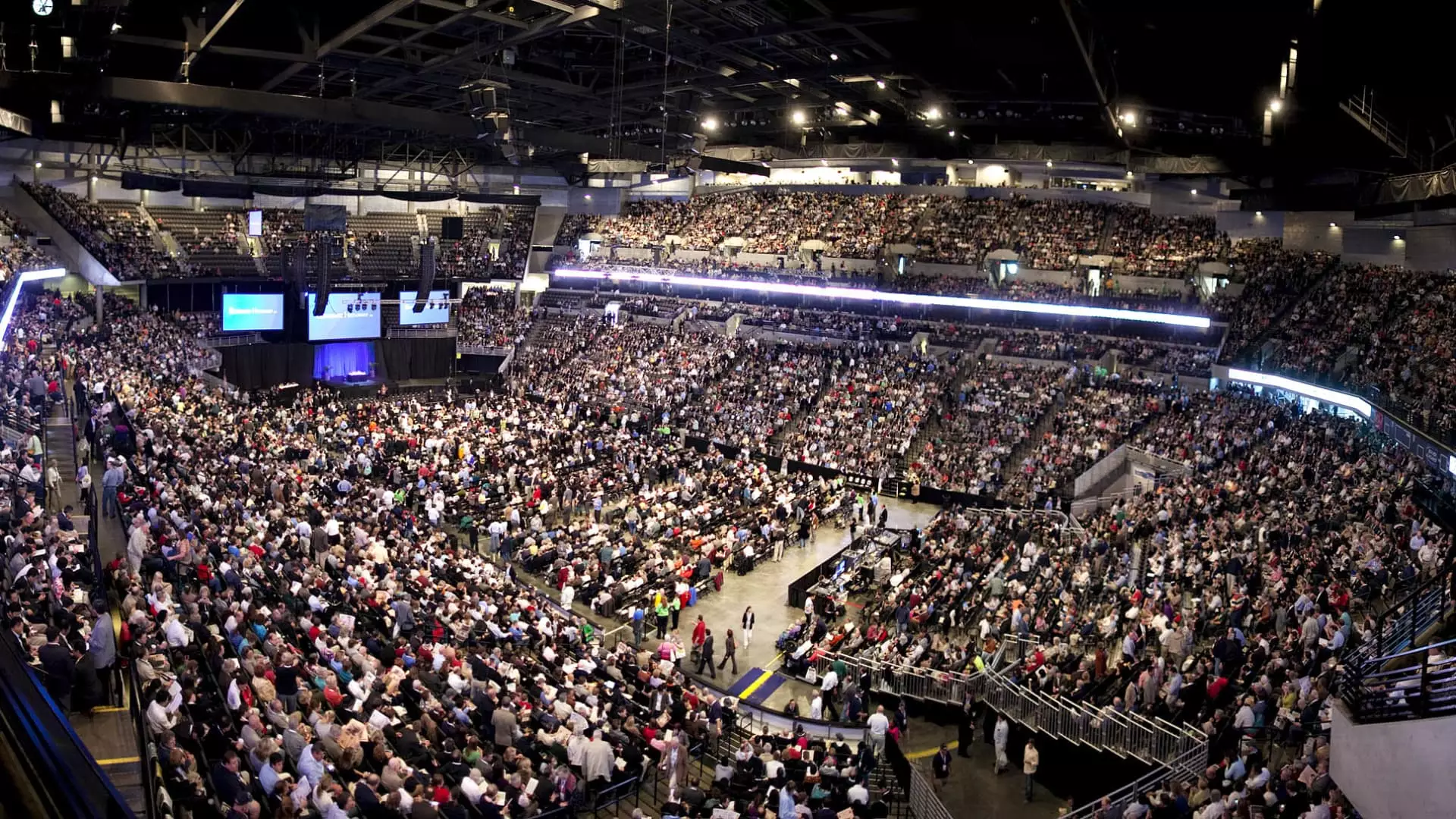Warren Buffett’s annual pilgrimage to Omaha has transformed remarkably since he first took the reins of Berkshire Hathaway six decades ago. From a meager gathering at a struggling textile company, the meeting has blossomed into an enormous spectacle dubbed the “Woodstock for Capitalists.” It epitomizes the dual notions of economic success and community in the investment world. Is it a mere investment forum, or has it morphed into a cult-like gathering of contemporary economic missionaries?
In 1965, the audience was a small, intimate affair comprising around a dozen investors, mostly insiders and close associates of Buffett. Fast forward to today, and tens of thousands of people from diverse walks of life converge on the CHI Health Center. They’ve come not just to hear investment wisdom but to participate in a vibrant tradition—one that speaks to the breadth of Buffett’s influence. It’s more than a meeting; it has become a cultural phenomenon.
Buffett’s Legacy: More Than Just Numbers
As the 94-year-old oracle of Omaha takes the stage, the weight of his legacy looms larger than the market indexes he so often discusses. Warren Buffett has transcended the role of a mere investor; he has become an emblem of a moral and ethical framework for capitalism. With every anecdote shared and lesson imparted, he has crafted a narrative that intertwines financial acumen with genuine humanity.
This year marks the absence of Charlie Munger, Buffett’s longstanding comrade and ideological counterpart. His departure raises questions about the future direction of Berkshire Hathaway. For many attendees, the dynamic duo has personified an ideal partnership grounded in shared philosophy and differing perspectives. Will the void left by Munger be filled, or is this a tipping point that signals a gradual shift in Berkshire’s ethos?
Chasing the Illusion: Is There Value Beyond the Event?
For attendees, the experience is intoxicating. Invitations to exclusive shopping experiences, value investing conferences, and even charity auctions add layers of excitement. However, I can’t help but wonder whether this celebration of consumerism overshadows the core purpose of the event. Does the “Berkshire Bazaar of Bargains,” showcasing products from subsidiary companies, dilute the sacred task of financial education? Essentially, are we attending to learn, or are we becoming mere spectators in a carnival of capitalism?
It’s critical to grapple with the duality present in these gatherings. While there’s an undeniable joy in meeting fellow investors and sharing insights, the weekend has become more of an entertainment spectacle than a serious academic endeavor. In a world where investment knowledge is easily accessible online, attending an event solely for its spectacle can feel increasingly superfluous.
The In-Person Experience and Its Unique Allure
Despite the pressures to indulge in consumerism, there’s something uniquely enchanting about the atmosphere at these events. Attendees often cite a “magic and camaraderie” that can’t be replicated through livestreams or remote viewing. The joy of being part of a community—feeling connected to like-minded individuals—is a potent draw.
Adam Mead’s comparison of the gathering to attending church is telling. It speaks to a sense of belonging and shared ideology that resonates deeply, especially in a polarized world. In a time when many people feel isolated or disconnected from their communities, the event serves as a beacon of hope and unity, even if it’s rooted in capitalism.
Media Attention: The Pulse of Berkshire Hathaway
With national networks like CNBC broadcasting the event, it’s hard to separate the meeting from its media frenzy. This coverage amplifies the allure, transforming Buffett’s musings into a spectacle that the masses can digest, absorbing wisdom from a safe distance. Yet, this media attention also risks commodifying the event itself; is there authenticity left when every word is dissected by commentators looking for headlines?
The accessibility of the event through live webcasts in multiple languages does open doors for thousands who cannot attend in person. However, one has to ask: does this dilute the essence of what Buffett and Munger built, or does it enhance the democratization of financial knowledge?
The narrative of the Berkshire Hathaway annual meeting continues to evolve, but as it grows, so too must our awareness of the fine line between an enriching communal experience and the risk of hollow consumerism. The allure of Omaha and its storied gathering will always be magnetic, but the deeper questions of purpose and authenticity will linger long after the lights dim on another monumental event.

